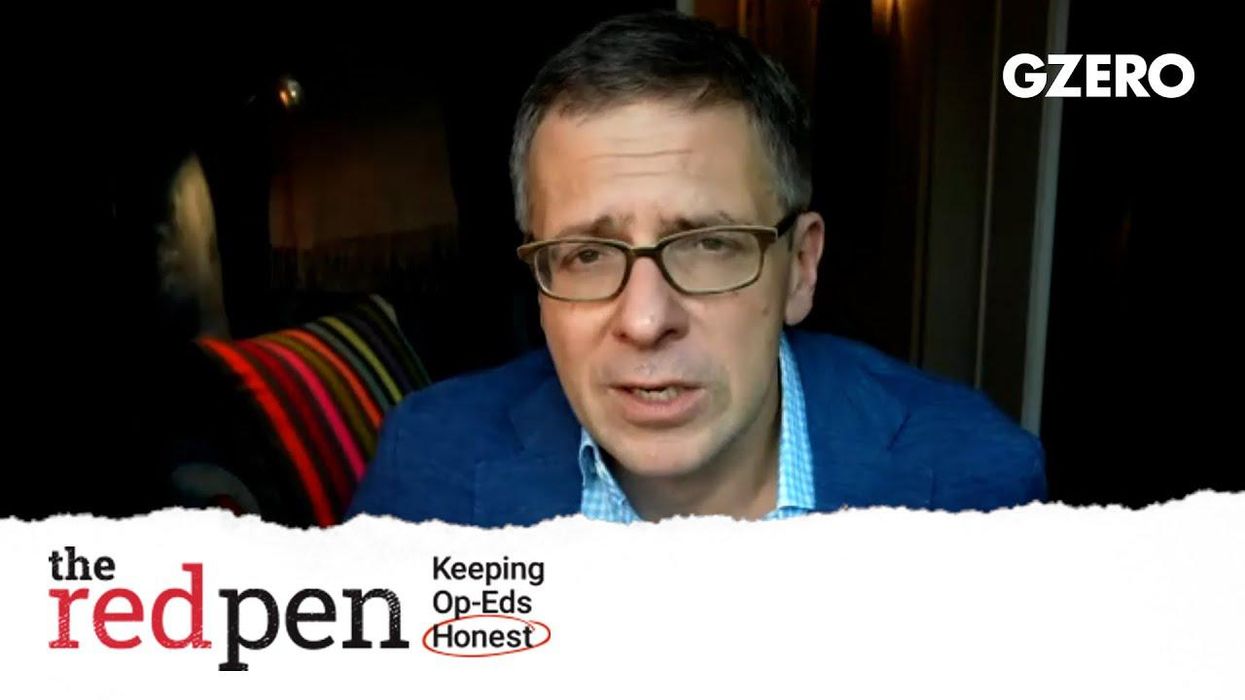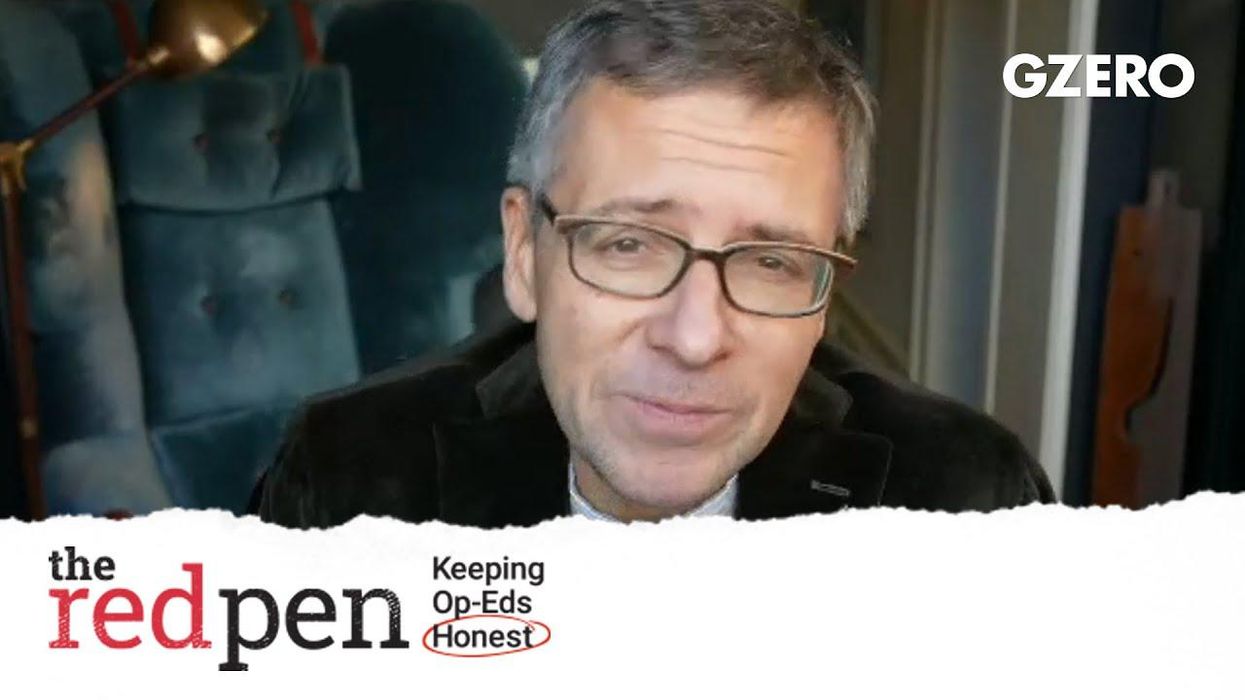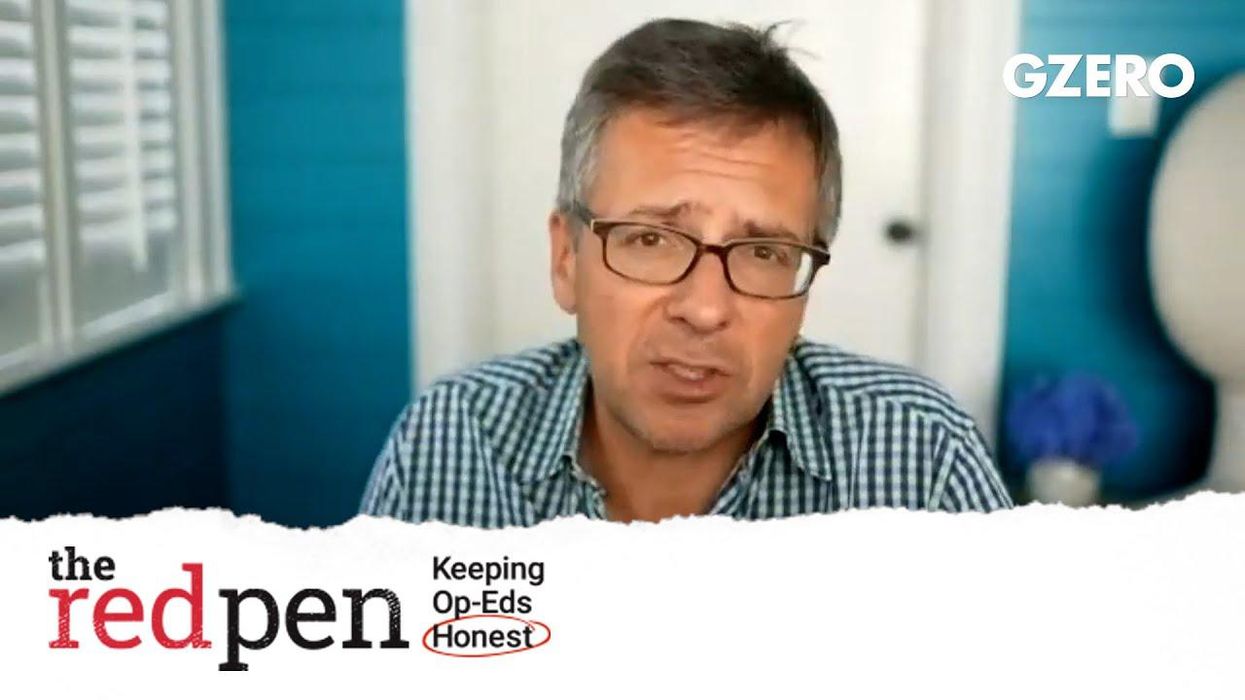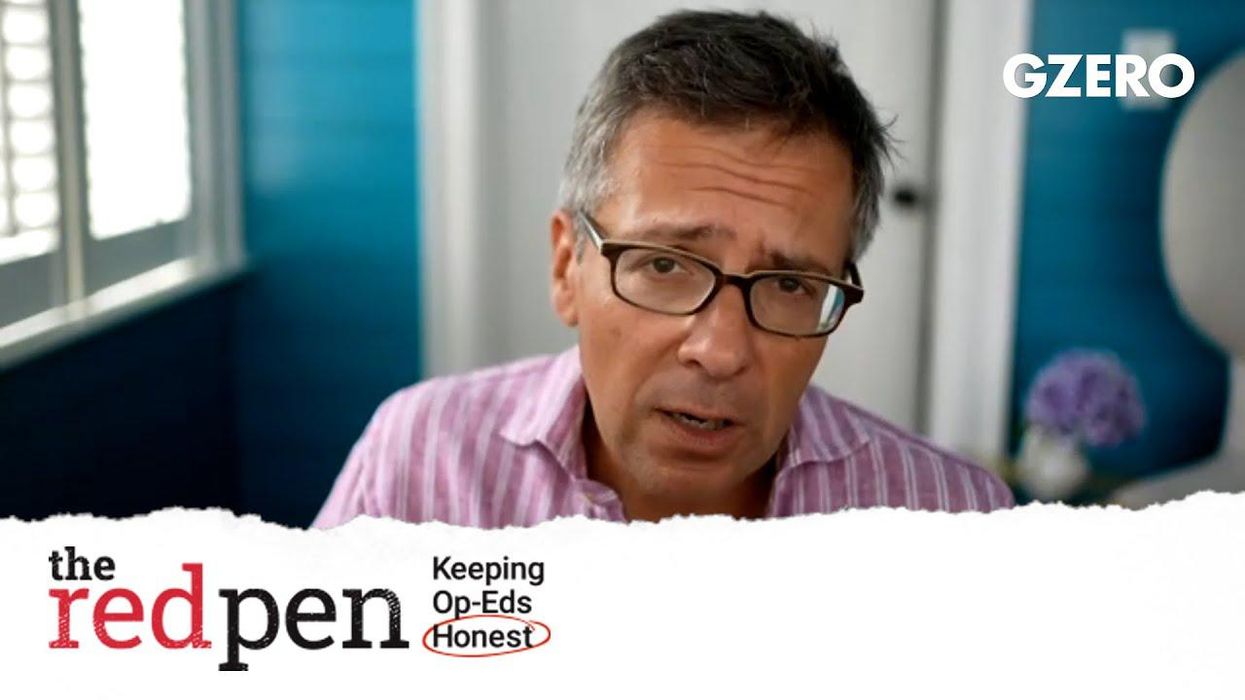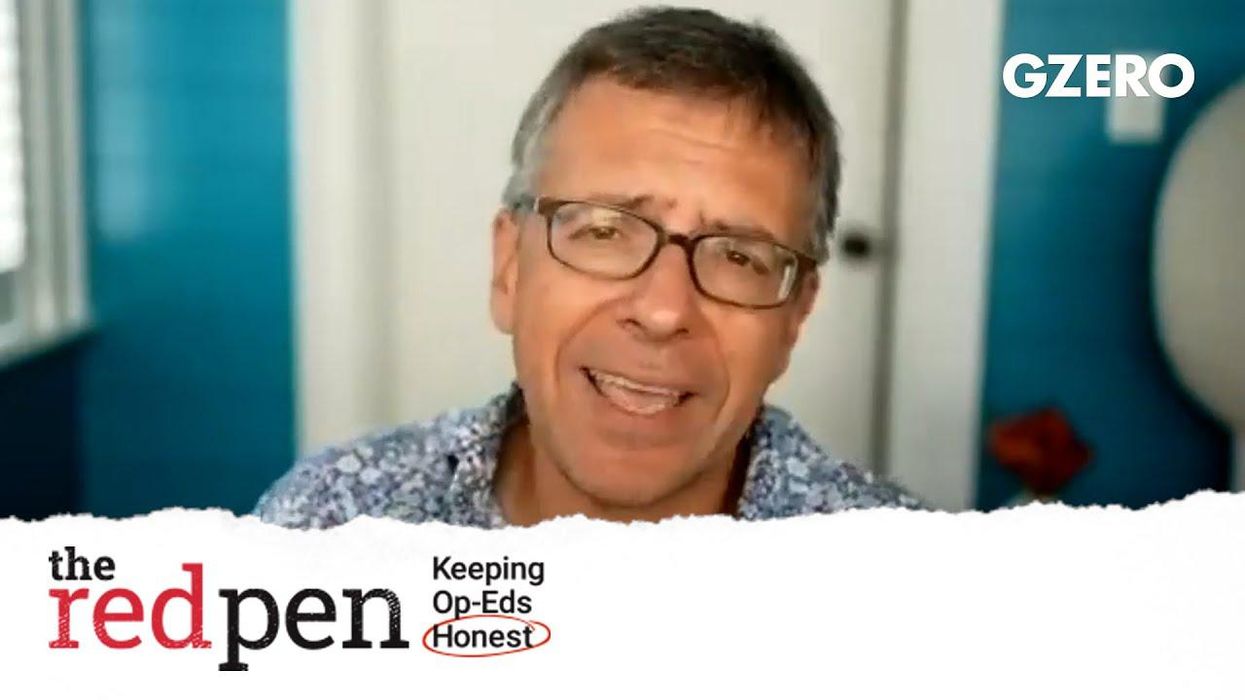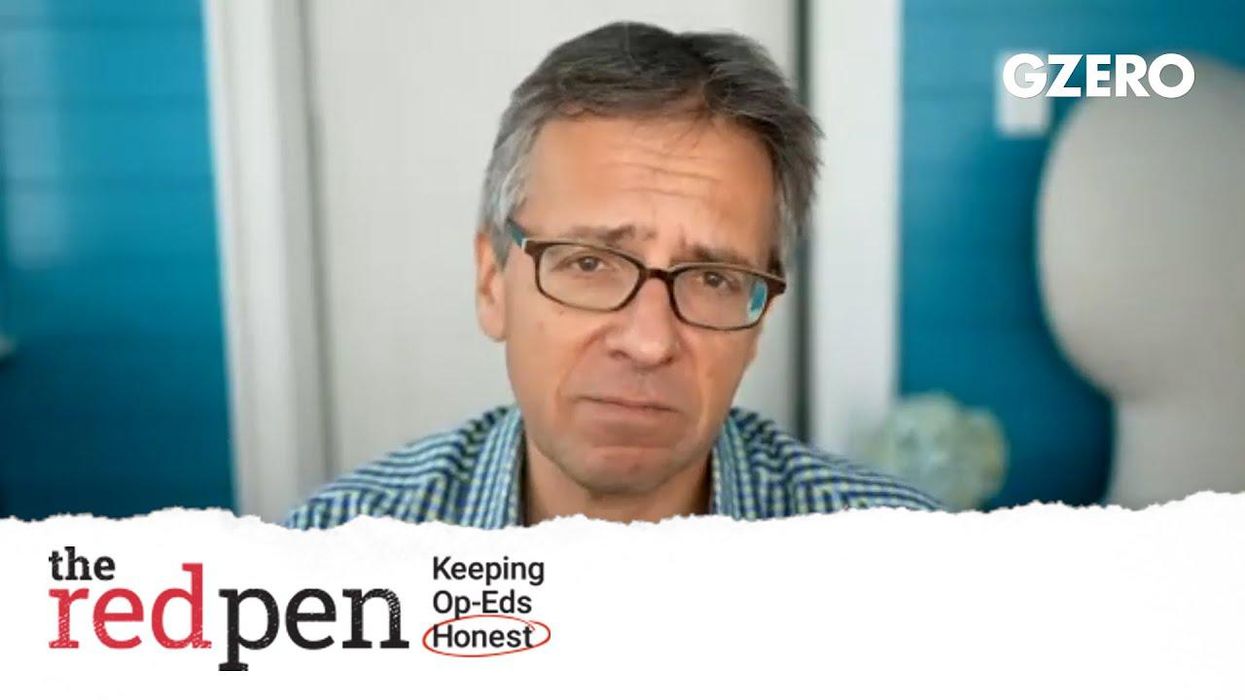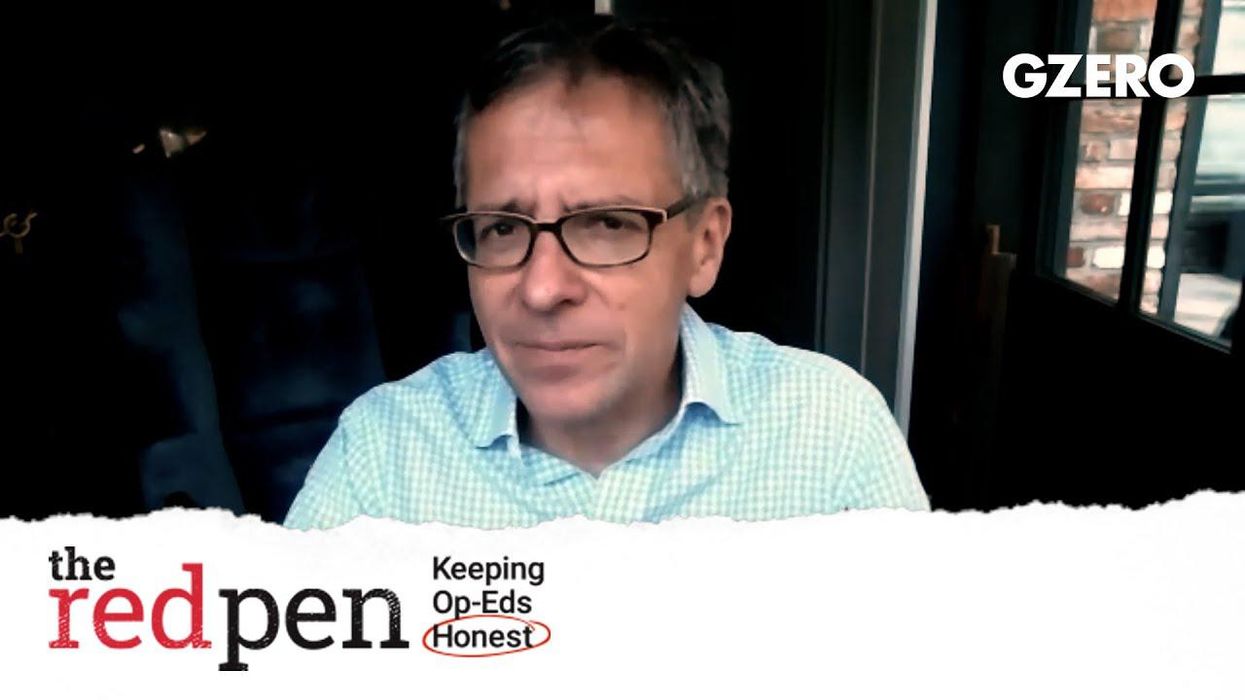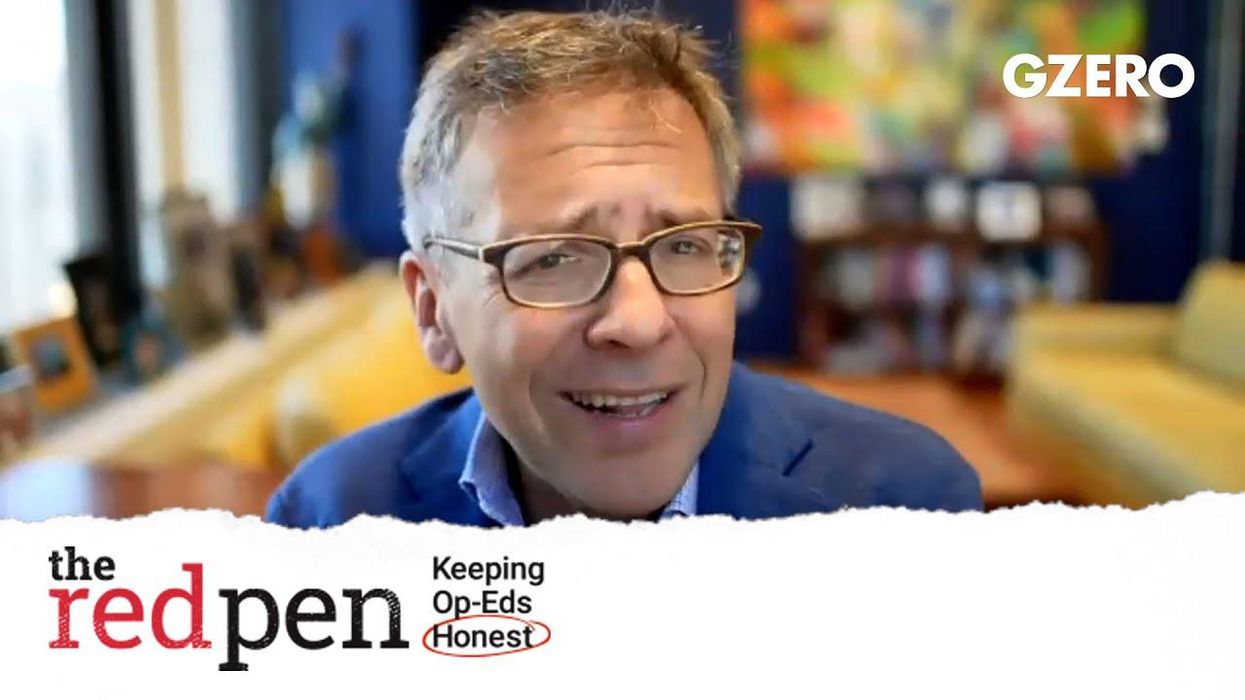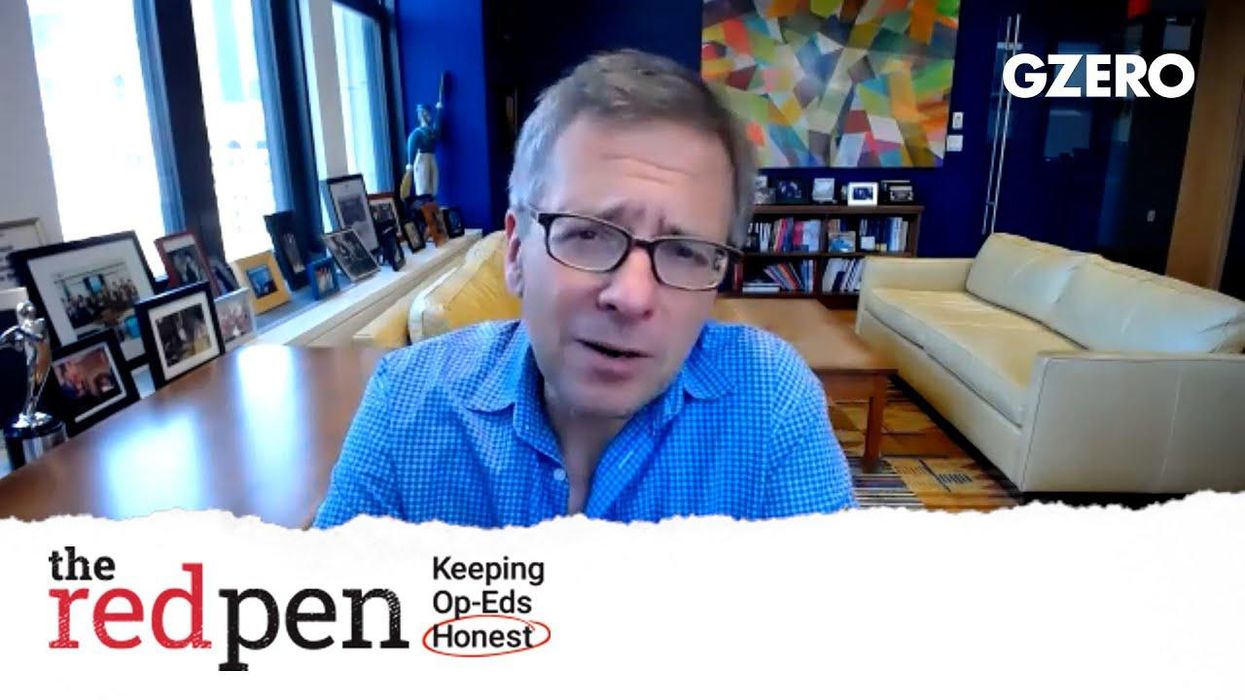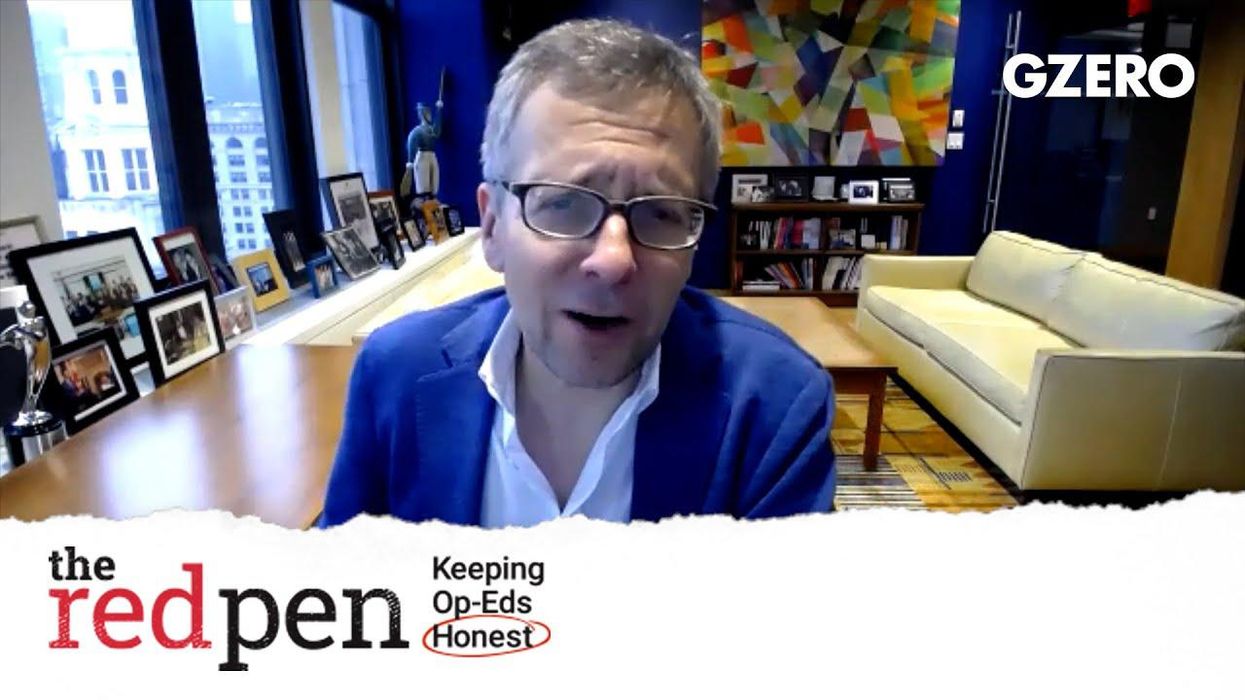The Red Pen
Putin is responsible for bloodshed in Ukraine, and Ukraine's pro-Western positions
Who is responsible for the crisis in Ukraine? Political scientist John Mearsheimer argues in a recent op-ed in The Economist that while Vladimir Putin started the war, it was NATO's "reckless" expansion that provoked Russia to attack. In this episode of The Red Pen — where we do our best to keep op-eds honest — Ian Bremmer and Eurasia Group analysts Graeme Thompson and Zachary Witlin explain that nothing the West did, or didn't do, caused Putin's invasion of Ukraine.
Apr 08, 2022
